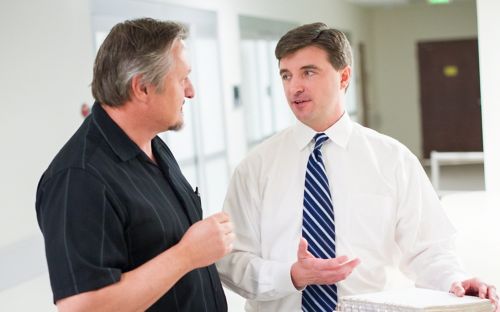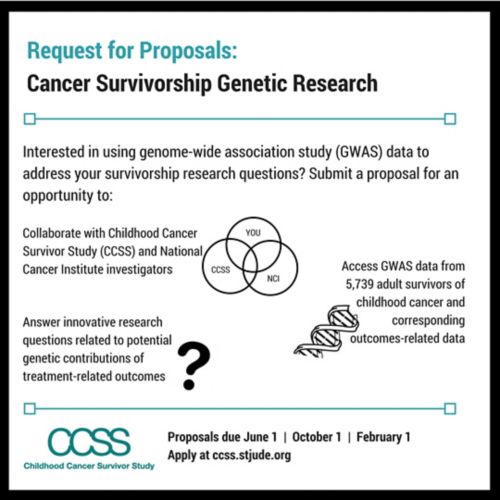St. Jude Family of Websites
Explore our cutting edge research, world-class patient care, career opportunities and more.
St. Jude Children's Research Hospital Home

- Fundraising
St. Jude Family of Websites
Explore our cutting edge research, world-class patient care, career opportunities and more.
St. Jude Children's Research Hospital Home

- Fundraising
Childhood cancer survivorship gains offers GWAS opportunities for researchers

Kevin Krull, PhD (left), and Greg Armstrong, MD, MSCE, are both involved with the Childhood Cancer Survivor Study. Researchers are encouraged to submit a request for survivorship GWAS data.
During the past three decades, we’ve learned how cancer and its treatment affects young cancer patients. As a result, we’ve improved therapies, reduced toxic effects and improved quality of life for survivors. That research has also helped thousands of adult survivors of childhood cancer.
As the Principal Investigator for the Childhood Cancer Survivor Study, I’ve seen much of that progress firsthand.
Childhood Cancer Survivor Study
CCSS is a unique cohort of long-term childhood cancer survivors, over 35,000, who were diagnosed between 1970 and 1999. It also includes 5,000 of their siblings as a control group for the study. It began in 1994, and is funded by the National Cancer Institute. We coordinate the CCSS at St. Jude, but it is truly a collaborative effort. We work with more than 30 cancer centers across the United States and Canada, including Fred Hutchinson Cancer Research Center and M.D. Anderson.
We’ve gathered information on smoking cessation, chronic disease, quality of life and many other health-related topics for childhood cancer survivors. Just this year at the American Society of Clinical Oncology (ASCO) annual meeting, several researchers presented data from the CCSS, including trends in the incidence of chronic disease in cancer survivors over the past 30 years. You can read more about these latest results in “Chronic health conditions among long-term survivors of childhood cancer decrease over three decades as treatments improve.”
Role of Genetics in Long-Term and Late Effects
As we look forward, a wealth of information will come from our expanding the genome-wide association studies (GWAS) by looking at genetic predisposition in long-term and late effect, both malignant and non-malignant.
GWAS Data Now Available for Investigators
To help accelerate this research, we’re now accepting proposals from investigators who want to work with us and the NCI to use the GWAS data. Our goal is to help answer innovative research questions about how genetics can contribute to treatment-related outcomes. Proposals will be reviewed every three months, and the next submission cut-off date is October 1, 2017.
For more information on the application process and to submit your proposal, go to https://ccss.stjude.org.







